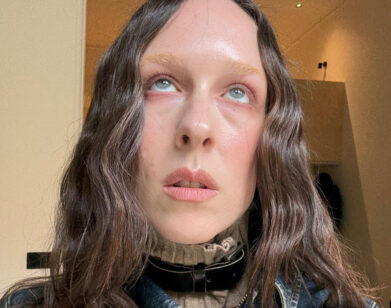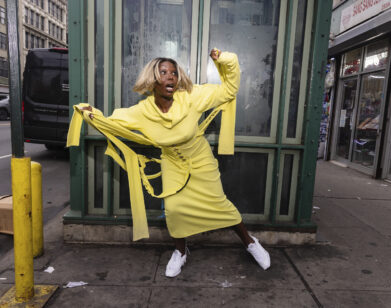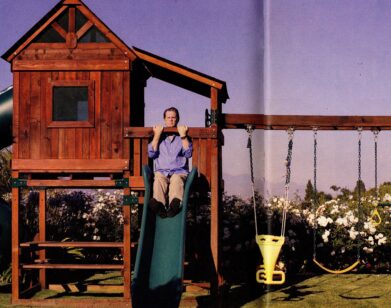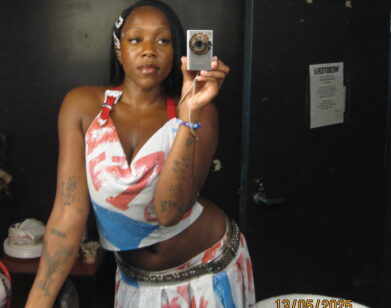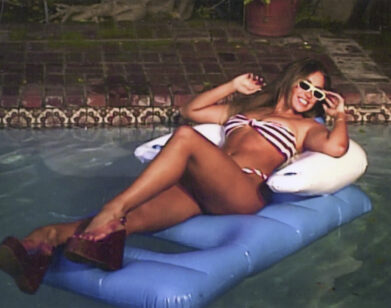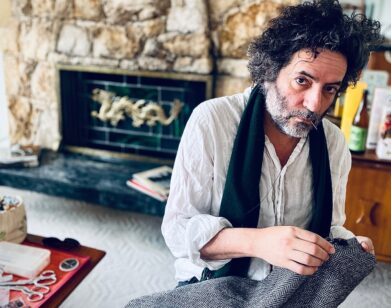introducing
Listening to Sofía Valdés is Like Daydreaming on the Beach
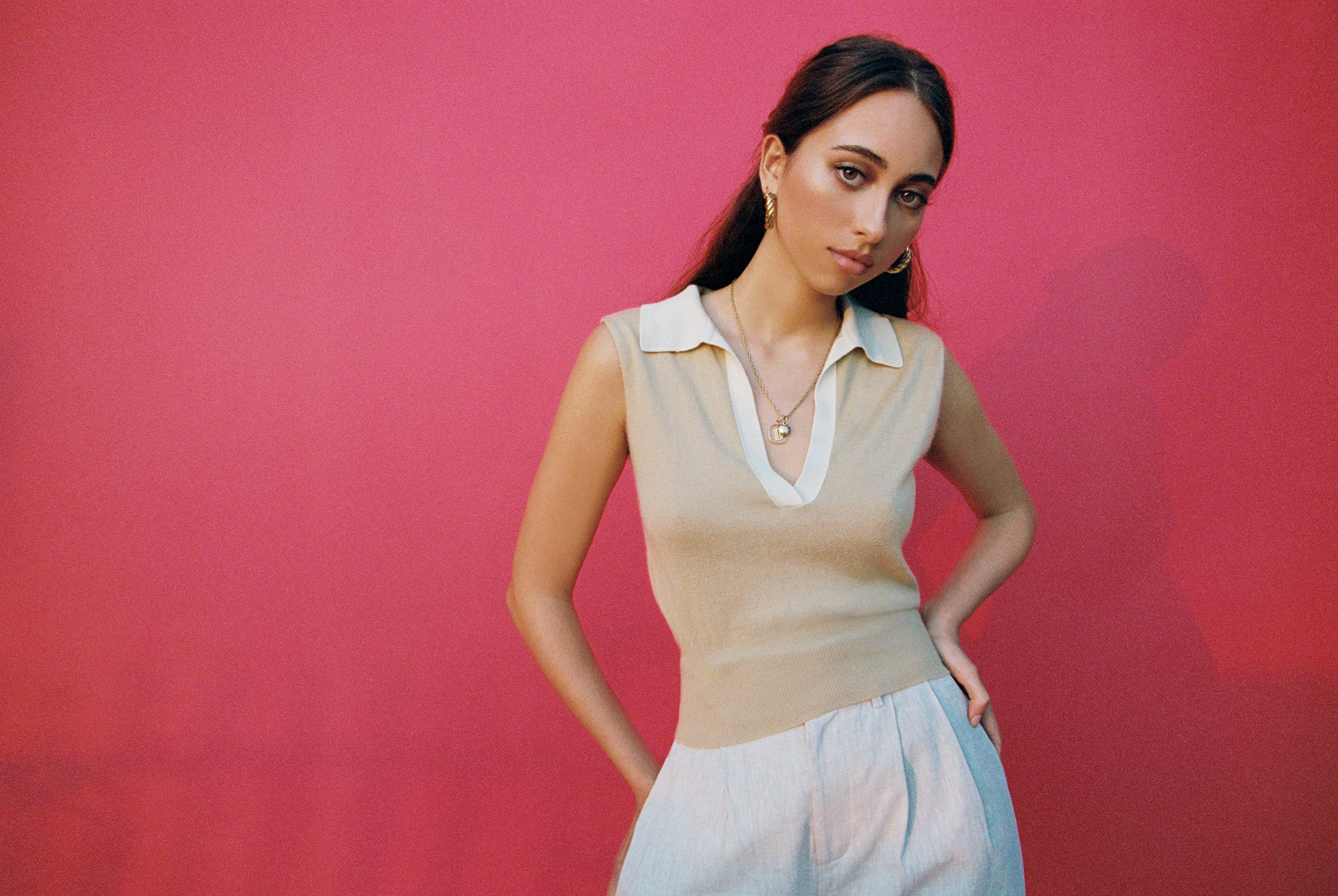
Photo by Julian Burgueno.
The Panama-born songwriter Sofía Valdés has only ever officially released music during a pandemic. She doesn’t seem to mind, though; enwrapped in her songwriting process and uninterested in letting the last year bring her down, Valdés crafts music that feels like it was somehow made using beach sand and turquoise water, her voice a comforting breeze over smooth melodies. After an adolescence shaped by her move from Panama to Interlochen, where high school bullies laughed at her then-rudimentary grasp of English, the 20-year old musician immersed herself in music, songwriting for hours a day while upholding good grades. Now, with the release of her new EP Ventura, Valdés is bringing everything back to earth.
———
KARL ORTEGON: How did you get into music?
SOFIA VALDÉS: I had no idea what I was doing at the start. I have a vivid memory of my first day learning electric guitar when I was little. My first song was Zombie by The Cranberries. I didn’t know what was good and what was bad, I was just excited to be playing. I think that’s probably the best way to approach it, because then you’re not comparing yourself to anyone else. You’re just doing what feels right and having fun with it. A few years later, I’d watch YouTube videos of kids playing guitar and then I was like, ‘Oh my God, they’re so good.’ And then I suddenly wanted my guitar playing to sound good like theirs, and to sound clean.
ORTEGON: Was there a point growing up where you went from wanting to sound good to wanting to actually make music and perform?
VALDÉS: Yes! I started to get obsessed with the idea of me being, like, a super pop star. I wrote my first song with someone, and I was like ‘Alright. Ready for stardom!’ But then I started talking to my mom’s friend in L.A., who was like, ‘I’ll be your manager, but you won’t get signed unless you start writing your own songs.’ And then I became fixated on becoming a great songwriter, and my pop star dreams disappeared, but it didn’t matter because I was so wrapped up in writing songs.
ORTEGON: You grew up in Panama, but then you went to school at Interlochen in the U.S., right?
VALDÉS: Right. I left for Michigan when I was like, 15. And then after a couple of years, I left and went to Liverpool Institute of Performing Arts in the U.K., and I was there when the pandemic hit. So I came back home to Panama and I’m here now. But at school, I was literally obsessed with songwriting. Every day I was writing songs, for as long as I wanted into the night, and then I’d go to school and go back home and keep writing. I mean, I was getting good grades, so nobody could get me in trouble. I was basically writing any time I wasn’t in school or asleep.
ORTEGON: Did you have ideas about what you wanted to do after school, with all of the songwriting building up?
VALDÉS: I remember loving songwriting so much, and my dream was leaving Panama so I could become a songwriter professionally. That’s what I wanted to do with school and beyond. I am so proud to be Panamanian, but I wanted to also be a singer who could speak and sing in English.
ORTEGON: Why English?
VALDÉS: For a few reasons. At first, when I got to Interlochen, I was teased so much because I didn’t really know English. When I had to go to the bathroom, I would literally ask the teacher if I could go ‘take a bath’ in front of the class. Or when someone would say ‘what’s up,’ I would be so confused, because I was taught you greet people with ‘good morning’ or ‘good evening’ and ‘how are you?’ One time, I dropped something at the airport and was stressed trying to collect my things, and a woman said ‘Oh, you’re fine!’ I was like ‘huh?! How can I be fine?’ I just did not get any sort of slang at first.
So to get used to my new environment, and to prove the bullies wrong, I was eager to perfect my English. There’s also the music side. I don’t want to limit my success and reach by only singing in Spanish—plenty of English-speaking audiences won’t listen to it. I also don’t want to be seen as just ‘a girl from Panama who sings in Spanish,’ because I think I’m so much more than that. I don’t want to be put in that box. But I definitely would love to write some music in Spanish, it just has to be done right—I don’t want to just do it because it’s trending.
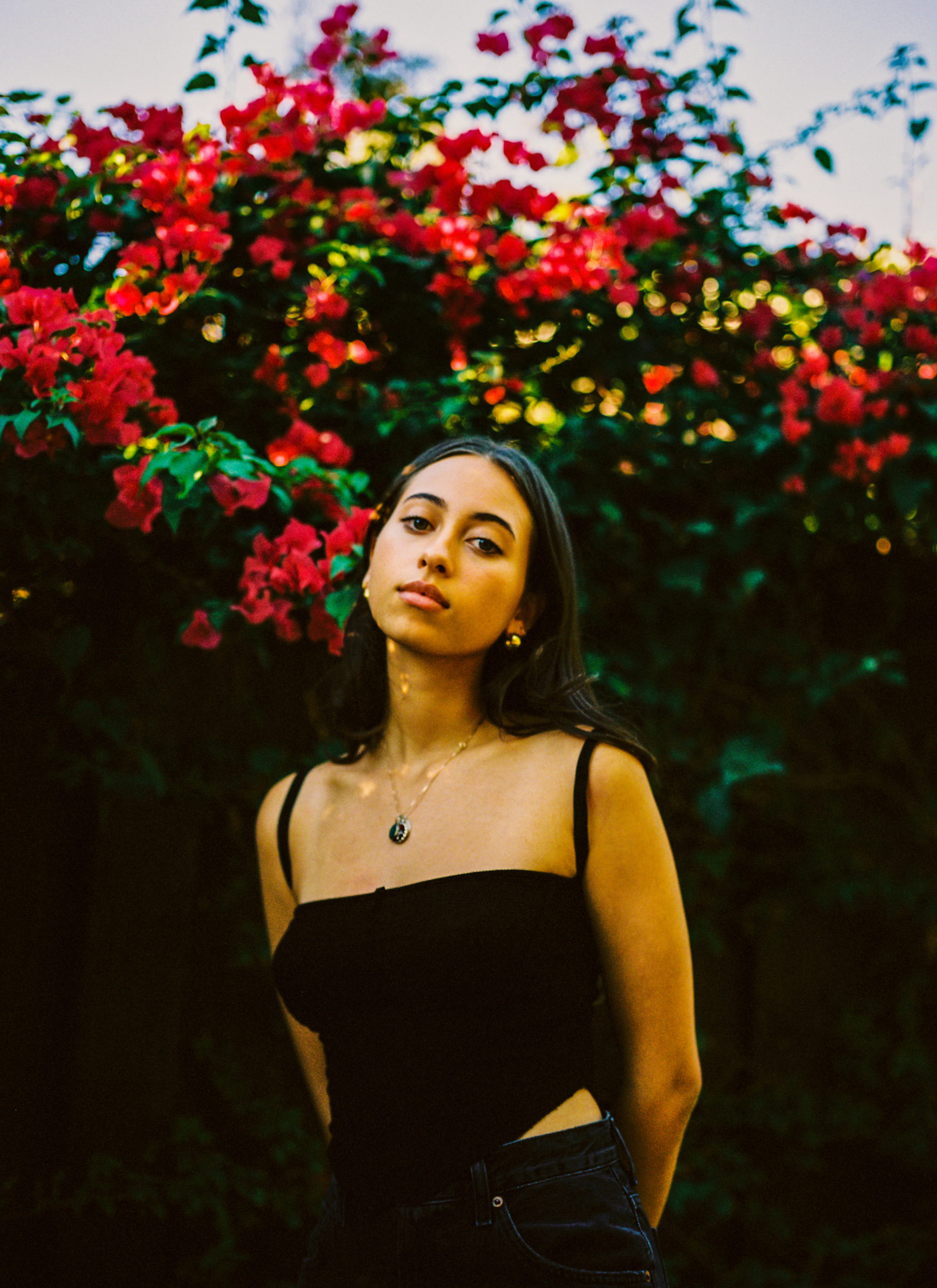
Photo by CJ Harvey.
ORTEGON: Who is a dream collaborator for you?
VALDÉS: Chris Martin, definitely. He’s just such a smart melody writer and he’s able to take something melancholy and make it into a happy song. I have no fucking idea how he does that, but it’s very happy. I want to do that with my music.
ORTEGON: I think you have done that already, though! There’s something about your music that feels earthy and natural to me, which in turn feels extremely fresh and happy. Even with songs like “Lonely” or “Little Did I Know,” which are about heavy things, it still feels uplifting and positive somehow. Do you mean to do that with the composition and production?
VALDÉS: Thank you. Everyone says that, the part about my music feeling natural and fresh, and I have no idea what the fuck they’re talking about. I’m like, thanks! There was this artist who I look up to a lot who DM’d me, and said my song “Handful of Water” made him feel like he was by the beach. I think it’s how I play rhythms with my lyrics, and I like to use Spanish guitars and live sounds, especially live drums. I’m glad that it comes across to people, but I don’t think I’m intentionally trying to make the sound beachy or natural, it’s just what feels right. I listen to a lot of Brazilian music, too, which maybe gives it that bossa nova feel.
ORTEGON: Awesome. My favorite track on Ventura is “Little Did I Know.” That pre-chorus where you sing “Somebody tell me, what’s going on?” is just so beautiful.
VALDÉS: I’m glad you like it, because I kind of see it as the ugly sister. It was one of my favorites, and then everyone around me just did not like it at first. I was the only one who liked it for awhile, but I started to dislike it until my A&R at Warner was like, “That’s the best song.” And now I love it again, it’s a favorite.
ORTEGON: I’m sure you’re looking forward to being able to perform live. Will you stay in Panama once the pandemic is over? How has it been releasing music during all of this?
VALDÉS: Yes, live elements are so important to my music, so I can’t wait to be able to actually do stuff live. In general, I haven’t been able to make music videos like people are doing in America. In Panama I might get a fine from just going on a walk; it’s very strict here. Once this is over, though, I could see myself living in London. I just love it there. And a bunch of my belongings are literally still in the U.K. at school, since I left last spring kind of suddenly. But I also love Panama, and I also might need to live in L.A. for some time for the music. We will just have to see.

